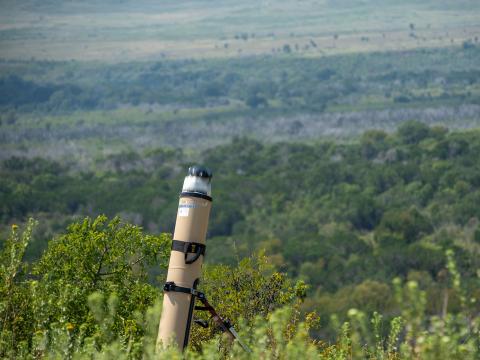U.S. Military Confronting Challenge of Keeping Soldiers Informed in DDIL Areas
U.S. military personnel are attacking the difficulty of ensuring that their soldiers are connected even in the most challenging areas. To overcome this obstacle, officials are seeking the development of capabilities and technologies that will enable warfighters to communicate with command and control officials and comrades in the face of denied, degraded, intermittent and low-bandwidth (DDIL) environments. Specifically, producing systems in the edge processing and artificial intelligence (AI) realms could lead to this goal becoming a reality, and achieving this feat is of paramount importance, according to Alan Delgado, division chief of the Joint Coalition Networks Division (G64) at U.S. Army Pacific.
“We have a new generation of warfighters,” Delgado said during a panel on winning in DDIL environments at TechNet Indo-Pacific 2025 in Honolulu. “They’re tech savvy. They understand how to work systems. They just need to be trained on them, and they need to understand why they’re doing it.”
“[We're working on] developing systems that assist them in making real decisions at the edge and in operations without being connected to their centralized command control point,” Delgado added. “We have to provide them the tools to make those decisions, because we have some very smart junior officers and enlisted that have the mental capabilities to make these decisions, and they’re mature enough to do them, but we have to provide them with the tools in order for them to gain situational awareness on the battlefield and make those decisions on their own. Being able to do that in a disconnected environment is, I think, very important to the future of how we fight wars.”
In addition to the AI and edge processing realms, military officials are exploring other innovative areas to confront the challenge of keeping soldiers informed in the DDIL area. They are looking into creating the blueprint for an optimal multi-agent system and integrating agentic AI, which some officials see as promising, said Capt. Mason S. Millsap, command, control, computing, communications, cyber, intelligence, reconnaissance and targeting (C5ISRT) systems integration officer and agentic warfare lead at the U.S. Marine Corps Forces, Pacific, Digital Transformation Team.
“If we have our tactical units on their edge compute kits with a local model, how does that interact with what our operational leaders in the higher echelons are using from a more enterprise perspective?” Millsap asked. “So, those are some of the questions that we’re looking at when it comes to implementing agentic AI, which I see is very promising. It goes back to network orchestration. You can apply it in all of the functions of warfighting, so it really comes back to intelligent automation and increasing the speed to decision and action for our warfighters across the entire formation.”
Soldiers tackling DDIL challenges and maintaining contact with their commanders serve them and the entire military in a plethora of ways. This capability enables warfighters who are at the edge to transfer data and information back to senior leaders, and warfighters who are at the edge can receive data and information from senior leaders that can assist and protect them while conducting their missions. Additionally, this capability can lead to soldiers making better, more informed decisions, Delgado explained.
“Being able to, in any way, connect back to our centralized point and update so that the warfighter can gain another wave of situational awareness at speed without clogging their data streams or their data flows so that they can move on to the next decision, because we cannot rely on stationary or static circuits in this environment,” Delgado said. “There’s just no possible way we can do that.”
TechNet Indo-Pacific is organized by AFCEA International and AFCEA Hawaii. SIGNAL Media is the official media of AFCEA International.


Comments